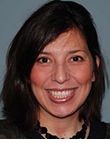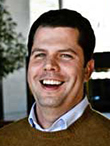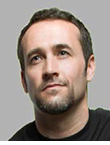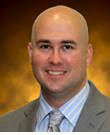Former students discuss career arcs at 2014 Rowlett Lecture

Ana Guerra

Briar Hannah

Colin Stanley

David Whitley

David Zatopek

Femi Kareem

Heath May

Lorena Toffer

Lucas Ponce

Matt Bauer
Ten young professionals with careers in the built environment, three of them graduates of Texas A&M’s College of Architecture, discussed how environmental, cultural and technological changes affected their career arcs at the 2014 Rowlett Lecture, held Friday, March 28 at the [Annenberg Presidential Conference Center] (http://apcc.tamu.edu/) at Texas A&M University.
The presentations and panel discussion was hosted by the [CRS Center] (http://crs.arch.tamu.edu/) for Leadership and Management in the Design and Construction Industry at the Texas A&M College of Architecture.
Exploring the lecture theme, “It’s Your Life,” were former students and noteworthy architects from Dallas-based [Corgan Associates, Inc.] (http://www.corgan.com/) , Colin Stanley, building information modeling manager and associate, Lorena Toffer, an associate and project architect and David Zatopek, vice president.
[Rowlett lecture part 2] (http://vimeo.com/93185609/) | [Rowlett lecture part 3] (http://vimeo.com/94068117) | [ Rowlett lecture part 4] (http://vimeo.com/93185608/) | [Rowlett lecture part 5] (http://vimeo.com/93325342/) | [Rowlett lecture part 6] (http://vimeo.com/94067257)
They were joined by Matt Bauer, assistant project manager at [Ridgemont Commercial Construction] (http://www.ridgemont.com/) ; Ana Guerra, an associate at [Jacobs] (http://www.jacobs.com/) ; Briar Hannah, project architect at Corgan; Femi Kareem, a photographer and architectural intern at Corgan; Heath May, a vice president at [HKS Inc.] (http://www.hksinc.com/) ; Lucas Ponce, president and founder of [Ponce-Fuess Engineering] (http://www.ponce-fuess.com/) and David Whitley, associate director of Dallas’ [CityDesign Studio] (http://www.dallascityhall.com/citydesign_studio/) .
This year’s event, said Valerian Miranda, director of the CRS Center, was a focus on questions one might ask relating to a typical career path — working at various firms in the years following graduation, establishing a practice at a large firm, then founding and developing one’s own firm until retirement.
“Is this the vision of you?” is one of the questions Miranda asked students to consider. “Or is this the vision of you that others have created of you, for you?”
This year’s panelists, he said, reflected on these questions and how community activism, diversity and advances in technology can be woven into the fabric of a professional practice in the built environment based on their many achievements in design and service activities.
The guest speakers discussed their own careers in the following contexts:
- How local and global environmental, technological and cultural conditions affect their practice;
- What new methods of collaboration they’ve adopted with peers and clients and how these methods have influenced the type of work they undertake;
- What key issues they are addressing and advocating and how they communicate these issues to the public, and
- Why they chose the career paths they have and what the profession and the built environment can expect from graduates today and in the near future.
Stanley, Toffer and Zatopek joined their fellow panelists in addressing these issues and referenced their own successes in design and service.
Stanley is a technologist, innovator, and licensed architect with more than 14 years of experience in the design profession. He champions emerging technologies and pushes the boundaries of modeling, digital and analog fabrication, parametric and computational design, 3D printing, CNC machining and industrial design.
Toffer helped found a Dallas AIA chapter committee, [Latinos in Architecture] (http://liacommittee.blogspot.com/) , which partnered with [Dallas City Design] (http://www.dallascityhall.com/citydesign_studio/) studio to preserve La Bajada, a West Dallas neighborhood whose unique character was threatened by development.
In its Young Architect Award announcement, the AIA called Toffer a passionate voice for diversity and inclusion, a role model, mentor and inspiration to emerging professionals, Latinos, women and youth.
Zatopek has provided leadership, design direction and planning expertise to award-winning projects including higher, primary and secondary education, aviation, business, civic and cultural clients, including [the Dallas Holocaust Museum] (http://www.dallasholocaustmuseum.org/) , [The Sixth Floor Museum] (http://www.jfk.org/) , [Collin College] (http://www.collin.edu/) , the University of Maine and Texas State Technical College.
Deeply committed to discovering the hidden stories behind each site and context, Zatopek approaches architecture as a collaborative art that encourages input from diverse, creative disciplines.
The John Miles Rowlett Lecture was endowed in 1979 by the Texas Architectural Foundation with a grant from the founders of CRS and Mrs. Virginia Rowlett with a goal of bringing speakers of national and international significance to the College of Architecture at Texas A&M. The original firm of CRS was established in 1946 by William W. Caudill and John M. Rowlett, professors of architecture at Texas A&M.
The Rowlett Lecture Series was then created in 1980 to bring speakers to architecture schools at Texas A&M and the University of Texas.
After reviewing proposals by each school for the inaugural lecture, Texas A&M was chosen and subsequently given control over the series by TAF because of its enthusiasm and the quality of the program prepared for the initial lecture series.
Tags
Related Posts
Luminaries speak at arch. lecture series

2015 Rowlett lecturer championed shaping the future by design
Design masters from Americas lectured this fall at TAMU
Lecture series hosts six design masters
Preservation experts review 1930s–era buildings on campus
Follow Us
Facebook Twitter Vimeo Youtube Flickr RSS
Recent Posts

Planning prof heads study of disaster housing aid

A message from the dean

Former student remembered as expert planner

Leading educator named new head of Architecture Dept.















_thumbnail_small.png)
